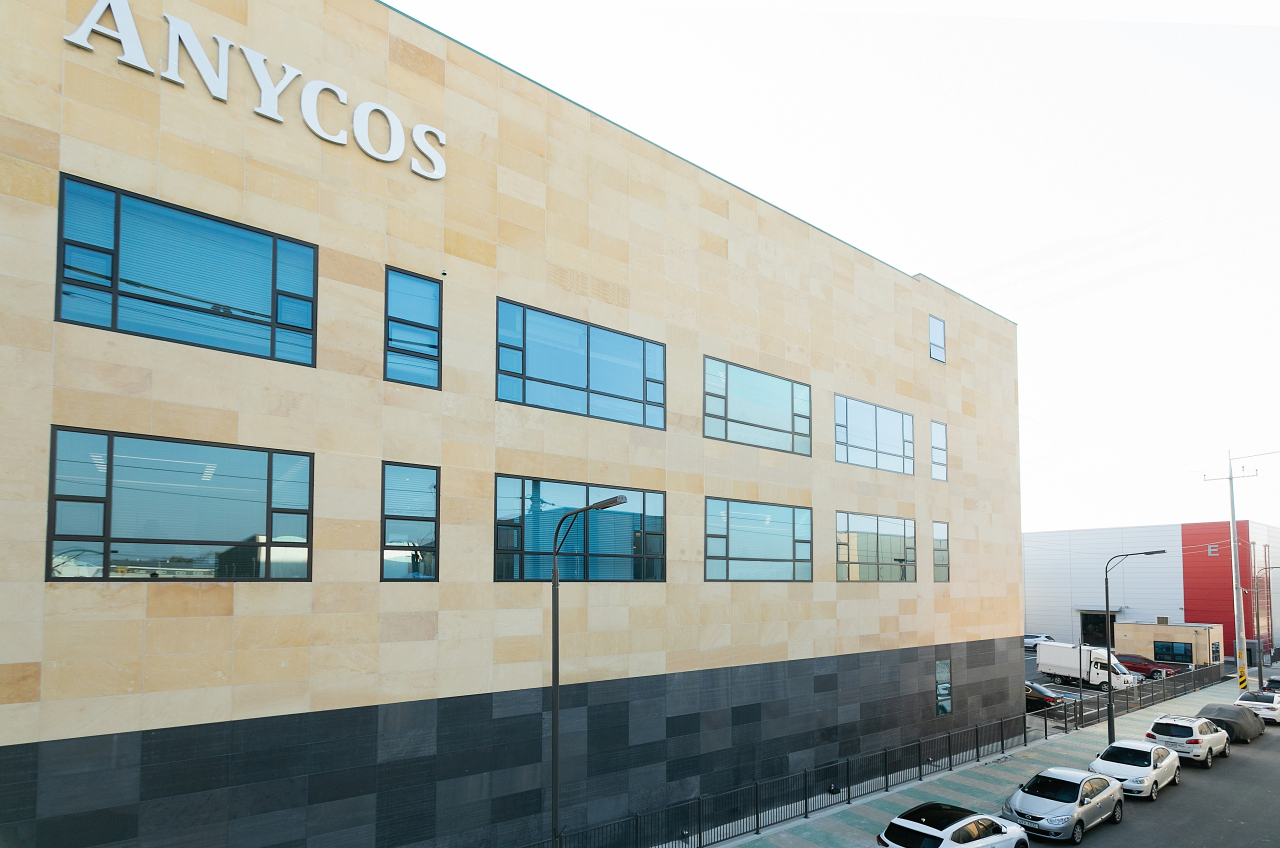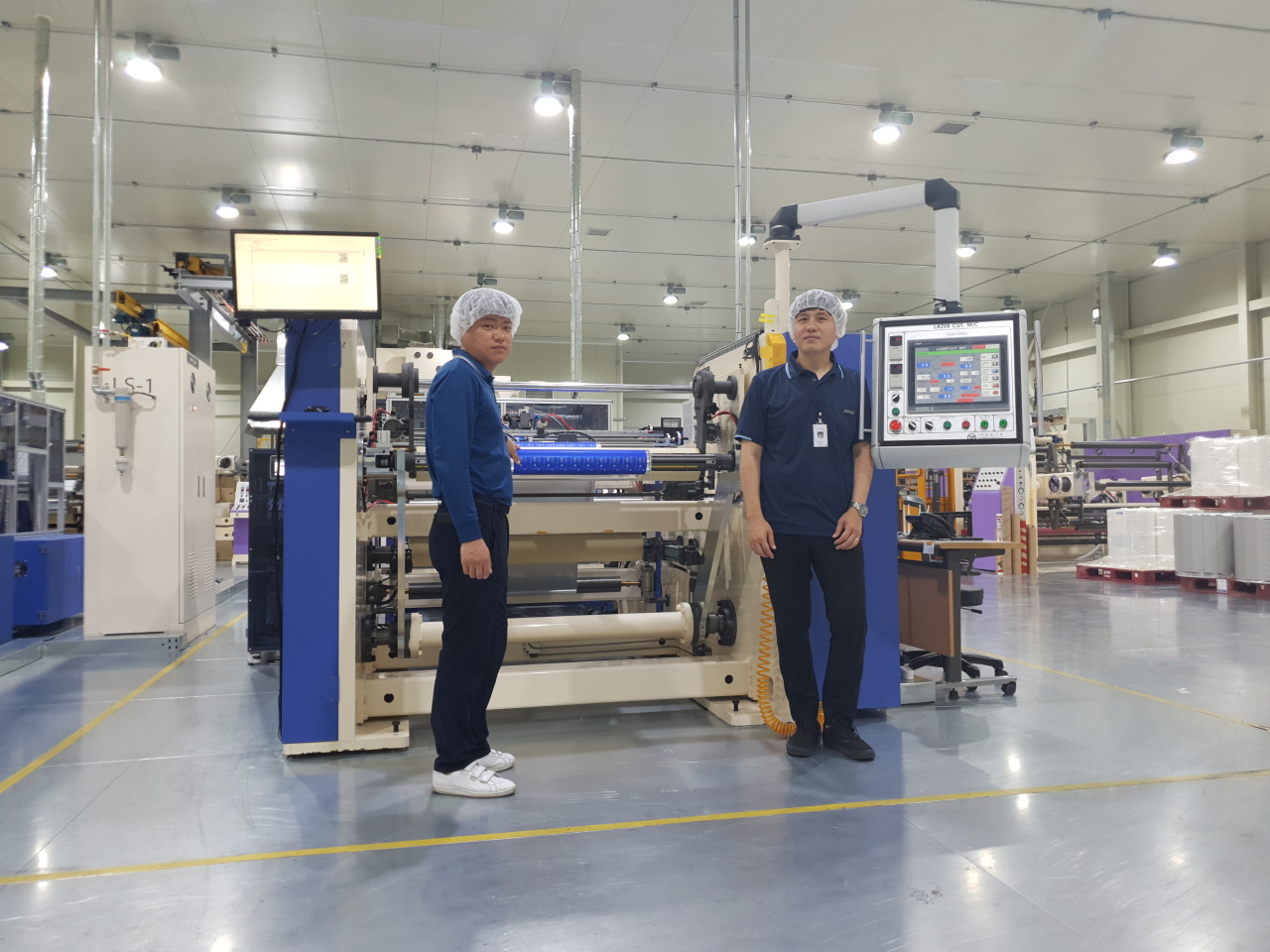The market for packaging has grown along with the popularity of online shopping, deliveries and home meal replacements.
Korean food manufacturing giant CJ projected that sales of home meal replacements would triple from 240 billion won ($203 million) in 2017 to 700 billion won by 2020.
Tapping into this trend, Anycos, which opened a factory in January in Hwaseong, Gyeonggi Province, is prepared to annually manufacture roughly 40 million meters of plastic packaging materials for food, cosmetics and pharmaceuticals.
 |
(Anycos) |
The company is in the process of patenting its High Speed Printing System for QR codes, which helps prevent copycat products by printing different QR codes on individual products for authenticity tracing.
Plastic materials for packaging have previously lacked the ability to have separate QR codes printed on them at high speeds, resulting in sticker-type QR codes that are prone to mishandling and low in productivity.
Anycos says it has overcome these obstacles with a quick cooling system and special ink.
“What’s essential is the technology to dry the special ink in the time you’d bat an eye,” said Anycos CEO Song Tae-yeol.
The inks used were previously unable to last on a plastic surface let alone be printed under time pressure, Song explained.
 |
(Anycos) |
Anycos’ system prints with special ink and adopts a fast-cooling system that instantly dries the ink, enabling five to six prints per second.
“We expect to get a patent for the ink and the cooling system by October,” Song said.
Anycos currently has deals with CJ, packaged food producer Ottogi, and cosmetics face mask firm SD Biotechnologies.
The company expects its QR code printing technology to be used in logistics management, marketing and promotional activities.
By Lim Jeong-yeo (
kaylalim@heraldcorp.com)









